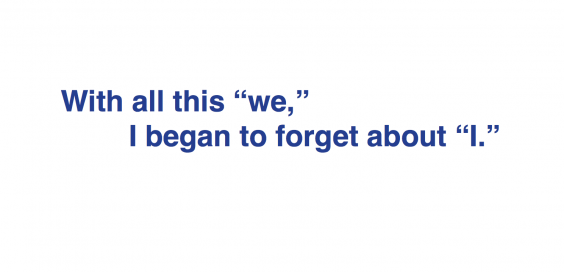I'm a bit slow on the uptake. It was not until recently (very, very recently) that I finally labeled myself with the lofty title, "Writer." Especially since the follow-up question is "Where have you been published?" Online blogging (obviously) does not count.

I used to only write—and fiercely enjoy it—for school. In my dim-wittedness I did not know that I could do it, you know, for myself, maybe one day professionally. Once out of college and devoid of required papers, my writing ceased.
This blog was originally established to be about the fetishes of the stereotypical Hungarian—fashion, skincare, makeup, really scrumptious recipes. But there is only so much one can post about face cream ("Elta MD is still my favorite SPF for summer!"). As I began to write, I also branched out in my reading, which in turn broadened my mind. My education has not ceased after leaving academia.
I also feel pretty good. Is it that when writing, one can purge oneself of negative emotions? Tara Parker-Pope reports ("Writing Your Way to Happiness") that studies show that writing definitely helps:
The concept is based on the idea that we all have a personal narrative that shapes our view of the world and ourselves. But sometimes our inner voice doesn’t get it completely right. Some researchers believe that by writing and then editing our own stories, we can change our perceptions of ourselves and identify obstacles that stand in the way of better health.
The mind can replay upsetting situations in a hopeless light. By writing it down, seeing the situation outside of one's brain, can awaken self-awareness, changing the perspective, finding solutions.
“These writing interventions can really nudge people from a self-defeating way of thinking into a more optimistic cycle that reinforces itself,” said Timothy D. Wilson . . .
Dr. Wilson, whose book “Redirect: Changing the Stories We Live By,” was released in paperback this month, believes that while writing doesn’t solve every problem, it can definitely help people cope. “Writing forces people to reconstrue whatever is troubling them and find new meaning in it,” he said.
. . . “The idea here is getting people to come to terms with who they are, where they want to go,” said Dr. Pennebaker. “I think of expressive writing as a life course correction.”
The health benefits are quite surprising, even extending to the romantic realm. In "The Best Way to Get Over a Breakup," Anna North writes about how writing exercises assisted the heartbroken.
When one is in a relationship, "me" morphs into "we." When the other half leaves, one could have forgotten who one is. Writing about it can reclaim the lost sense of self. The sensation of loneliness lessened.

But one can journal about problems too much, ruminating almost as much as thinking about it. Write it out, find some revelations, get to comprehend motives and emotions, but don't wallow.
For many, the key may turn out to be some self-reflection, but not too much: writing about your feelings, “but then not necessarily mulling over it or doing any more. Just write it, talk about it, leave it, do it again.”
“There’s a really delicate balance between avoiding and getting over-involved for every stressful event,” Dr. Sbarra explained, “and so you touch on it, you think about it, you put it out there, you reflect, and then you sort of create some distance.”
Are Jews repeating the mistake of the Romans?
ReplyDelete***************************************************
"Social status [in ancient Rome] was defined
in part by the food served at a banquet.
The more numerous, varied and expensive the
dishes a host served, the more impressive
he seemed to his guests.
It was not unusual, therefore, for some
people to spend more than they could afford
on food for such occasions, causing them
to go into debt."
SOURCE:
The Roman Empire, chapter 3, page 35,
by Don Nardo, year 2006 CE.